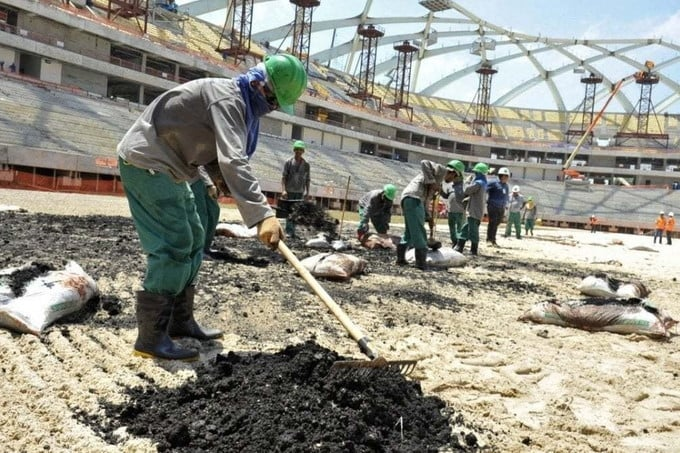Some of the workers who worked at the World Cup stadiums in Qatar have only been able to visit their families three times in eight years. And, if after the competition they thought of going home, it seems that will not be the case, given that many of them have remained poor, and in debt to the companies that carried out the work. They are left with no choice but to continue working in Qatarunder conditions of exploitation. According to what is reported by the New York Times, which cites data from the Nepalese labor ministry, at least 2,100 workers from the country have died. Nevertheless, approx 2000 migrant workers continue starting every day from Nepal to go to work in Qatar.
Debt with companies
Qatar, in fact, has adopted a particular system of exploitation for the construction of the stadiums of the World Cup. When the competition was awarded to the Persian Gulf Country, Doha it did not have the necessary infrastructure to host a world championship. For this reason, Qatari companies went abroad, to countries such as the NepalL’India and the Pakistan, to recruit workers willing to move to Qatar to build stadiums. They did this by telling the workers they would have to pay approx 1500 euros to have the privilege of working. By then the workers were stuck. They had to work to pay off the debt, but this has been happening so slowly that many have been stranded in Qatar for years. At the mercy of companies that barely guaranteed them sick leave and sick days.
“We have to work”
«Working abroad is not a choice, we are obligedsaid Ganga Bahadur Sunuwar, a Nepalese worker, al New York Times. Sunuwar developed very severe asthma while working in one steel factory in Qatar. “I felt like I was dying in my room” – continued Sunuwar – “I asked to be able to leave seven times before they allowed me due to my health conditions. I couldn’t escape because the company I worked for had confiscated my passport». Nonetheless, Sunuwar is thinking of returning. “I was earning approx $250-300 a month, while here in Nepal I reach 55. But I know it could cost me my life». Another worker tells the times that when the workmen went out a to protestleaving the ghetto where they are confined, away from the center of Doha, have been placed in prison for a week, to then be taken back to the work camps. “Now I’ve managed to go home, but I still haven’t paid my debt. I will have to go back to Qatar and work there again », she concludes.
Cover image: Collective
Read on about Open
Read also:


